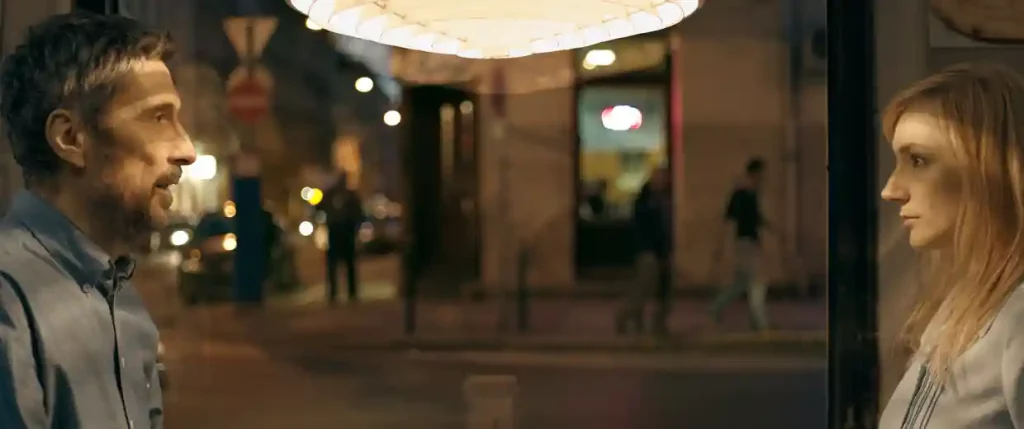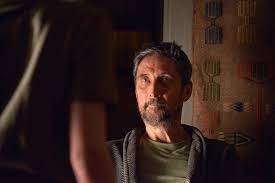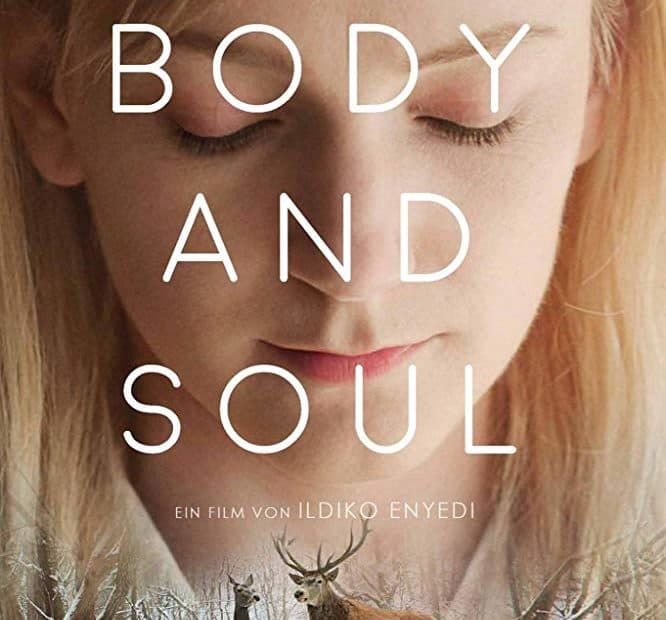Initially, I was not a big fan of Ildikó Enyedi’s films. I saw her first feature, My Twentieth Century (Az én XX. Századom), on television 1989 just a few months after it received Camera d’Or in Cannes for best first feature. At the time, I was struck mainly by the number of intertitles telling us where we were in time and space, and the film literally seemed to me to be all over the place. I did like Dorota Szegda as the two sisters. My friend Lars was enthralled by the film and tried to explain its virtues to me, but I remained sceptical.
Even though I found much to admire in later works like Simon the Magician (Simon Mágus 1999), it always felt to me that the films were bogged down by a certain ponderousness. The director was obviously intelligent and well-read, but some things always bothered me, like the operatic grandstanding occurring in the use of music, whether it was Beethoven’s seventh symphony in Simon Mágus or the references to Weber’s opera Der Freischütz in Magic Hunter (Buvös Vadász 1994)
The Return of Ildikó Enyedi
Flash forward to Berlinale 2017. Eighteen years after her last feature film, Teströl és Lélekröl was screened as one of the first films competing for the Golden Bear. I was not sure what to expect. During the 18-year impasse, Enyedi directed only one short and numerous episodes of the TV show Terápia. I was charmed by the short First Love (Elsö Szerelem 2008) with the director’s daughter in the leading role, but it was made nine years prior to the Berlinale entry. Thus, with great expectations and some trepidation, I walked into the Berlinale Palast for the premiere screening.

It didn’t take long before I was completely immersed in the film, and my doubts faded away. The story set in a slaughterhouse about two co-workers sharing the same dreams was told with clarity and candour, which was absent from her earlier works. That goes both for the brutal depiction of animal slaughter, as well as the frank sensuality at play, and not least in its droll sense of humour.
Herbai Maté lensed several of the Terápia episodes and provides the film with contained camerawork that, thankfully, doesn’t reach for cheap effects. The recurring motifs never become too obvious. Likewise, the editing is subtle, with consistent pacing that doesn’t change even in the more dramatic moments. Beethoven and Weber are replaced by Laura Marling’s wistful What He Wrote.
Alexandra Borbély
The acting from the first-time (and last time, according to the director) actor, Géza Morczányi, as well as by Alexandra Borbély and Réka Tenki, adds significantly to the naturalistic atmosphere, with veteran actress Itala Békés delivering some of the funniest lines. How the film manages to combine those more grounded scenes with the dreamy or metaphysical ones is the key to its success or failure with the individual spectator. For some, it might feel like a rom-com wolf in an arthouse sheep’s clothing, but everything came together beautifully to this viewer.

This is a strange love story if there ever was one, but even though the main characters act weird and elicit laughter at times, there is still an obvious respect for them. Comments have been made that the depiction of the relationship doesn’t feel modern, and again, it’s up to the single viewer whether the film feels timeless or dated. It is undoubtedly the work of a director who doesn’t worry about ticking all the boxes that might appeal to an audience more worried about what’s topical than anything else. Thus, the Golden Bear came as a huge surprise, but it also felt well-deserved. It’s not the kind of film that typically receives awards.
When I later returned to Enyedi’s previous films, I appreciated them more than before. The opportunity to see them on a big screen during the retrospective held by Nowe Horyzonty in 2018 enhanced those impressions. Thanks to the success of On Body and Soul, her upcoming film is already in the works. It will be an adaptation of Milán Füst’s most famous book, The Story of My Wife (A feleségem története).
It is an international production with Léa Seydoux and Gijs Naber playing the leading roles. Füst is, of course, no stranger to the director since she made the short Téli hádjarat (Winter Warfare) in 1991 based on some of his texts. It will be her sixth feature within 30 years. I can’t wait to see the finished result, and hopefully, her films will become more frequent in the future.


Pingback: A cinematic breath of fresh air: The films of Ágnes Kocsis Part 1 - The Disapproving Swede
Pingback: Nowe Horyzonty 2019 Day 4 - The Disapproving Swede
Pingback: The spellbinding quality of Anna Karina - The Disapproving Swede 1
Pingback: Nowe Horyzonty 2019 Day 3D - The Disapproving Swede with the amazing Gan Bi film